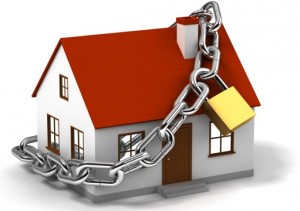The proposed “reforms” to the Residential Tenancies Act are a gross violation of property rights and of the freedom to carry on a legitimate business.
In essence, the increased rights which would be given to tenants amount to giving control of the landlord’s property to the tenant and forcing the landlord to be subject to the whims of the tenant and the Tenancy Tribunal.
The key changes proposed are an end to the 90 day no cause termination; tenancies not terminable on a 42 day notice even on sale of a house; rent increases limited to one per year; and increasing penalties on landlords and making landlords subject to audits by MBIE.
All these changes essentially mean that tenancies would effectively be perpetual: once you get a tenant in, you won’t be able to get them out! The hard-earned money which landlords have put into rental housing would be put seriously at risk.
It seems the Government wants landlords to get out of the business and sell their rental properties in a fire sale - so as to bring property prices down in the hope that renters will be able to buy their own homes.
But the proposed changes ignore proven economic theory and empirical evidence from numerous other countries. This includes research by Nobel laureates like Gunnar Myrdal and Nobel laureate- Milton Freidman which finds that rent controls have a detrimental impact on the rental market, particularly on poorer tenants.
Respected economists have shown that rent control diverts new investment, which would otherwise have gone to rental housing, toward investments giving better returns. They have demonstrated that it reduces the quality and quantity of rental housing stock, discourages rental housing construction, and leads to less repairs and maintenance.
On top of this, landlords would try to increase rents, get more selective in their choice of tenants and, potentially, sell their rental houses - but not at distressed prices.
The foundation of the Government’s proposal is the BRANZ NZ Rental Sector Report 2017, which is based on a small sample size [1099 tenants, 406 landlords in phase 2 and 86 tenants, 48 landlords in phase 3]. It can by no means be considered representative as there are 2.5 times tenants as compared to landlords surveyed.
Yet, while this suggests a bias, the report concludes that “the tenants and landlords in this study generally reported, in both the CATI surveys and the follow-up interviews, reasonably satisfactory or good renting experiences”.
The irony is that besides making life difficult for landlords, the proposed reforms would only work to exacerbate the housing shortage. They would also make it much harder for lower quality tenants to obtain a rental in the first place.
The proposed measures would only succeed in the manner predicted by renowned Swedish economist Assar Lindbeck in his 1972 quote: “Rent control: the most efficient technique to destroy a city - except for bombing”.
Naveen Goel is a landlord and a lawyer. He made a submission on the Government’s proposed tenancy law reforms on behalf of himself and 62 other landlords.




 Search
Search
